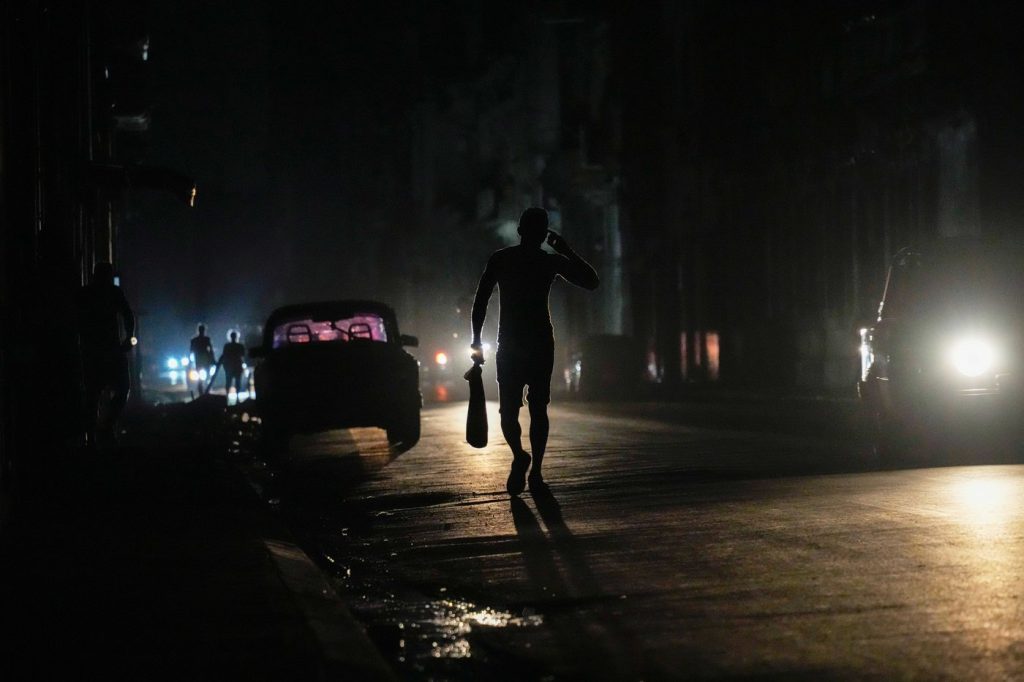HAVANA (AP) – A massive power outage struck Cuba on Friday night, affecting millions and plunging both Havana and provinces across the country into darkness. The blackout occurred around 8:15 p.m. local time due to an incident at the Diezmero substation located on the outskirts of Havana, as reported by Cuba's Ministry of Energy and Mines. This incident led to a significant loss of electricity generation in western Cuba, resulting in a failure of the National Electric System.
The Ministry publicly announced via its account on the social media platform X that efforts are being made to recover the power supply. Streets throughout Havana were left dark and deserted, illuminated only by the lights of hotels equipped with generators. Internet services were also impacted, hampering communication and connectivity for residents.
Reports emerged from various provinces, including Guantánamo, Artemisa, Santiago de Cuba, and Santa Clara, where residents experienced blackouts accompanied by intermittent flickers of light. Prior to this outage, the Electric Union, which regulates Cuba’s electrical sector, indicated in a daily report that the peak-hour demand for electricity was expected to reach approximately 3,250 megawatts, with a shortfall of around 1,380 megawatts. This deficit meant that about 42% of the nation's energy system would be offline, though it is worth noting that this is not the highest deficit recorded in recent years.
Cuba's power grid has faced persistent challenges, with frequent outages affecting more than half of the country, particularly during peak hours. Key contributing factors to these power cuts include fuel shortages and aging electrical infrastructure. In many areas of the island, electricity is essential for basic functions such as cooking and water pumping, making the outages particularly detrimental to daily life.
In response to the ongoing energy crisis, Cuban authorities have initiated a program aimed at installing photovoltaic parks, with commitments to have dozens of these renewable energy projects operational within the year. These recurrent blackouts have previously incited anti-government protests, with demonstrations occurring in 2021, 2022, and 2024 due to rising public discontent over the power crisis.
The situation exemplifies the broader economic challenges faced by the country, where energy shortages continue to exacerbate living conditions. Cubans remain hopeful that the government's efforts towards renewable energy will ultimately alleviate the burden of frequent power outages.
The Associated Press










